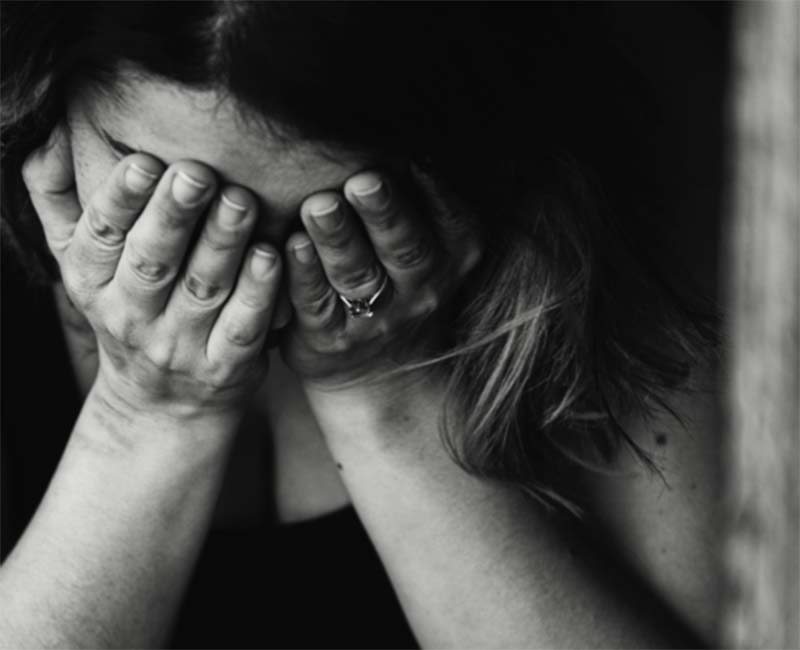
First of all it is important to understand what essential oils are:
Plants contain compounds that hide within the roots, flowers, seeds, bark, or other areas of the plant, known as essential oils. They are highly concentrated, making them extremely potent. Also referred to as volatile aromatic compounds, essential oils give a plant its aroma, protect it from harsh environmental conditions and insects, and even play a part in plant pollination. Volatility refers to a substance’s ability to change its state quickly. The chemical makeup of volatile aromatic compounds in essential oils allow them to disperse quickly through the air. This is why you can instantly smell the potent aroma of an essential oil from the moment you open the bottle—even from a distance.
There are over 3,000 types of volatile aromatic compounds that have been discovered so far. Because of unique chemical makeup, each essential oil will vary from species to species, and even from plant to plant.
The volatile compounds interact directly with the brain’s olfactory sensors which is connected to the limbic system which helps control numerous emotional, voluntary, endocrine and visceral responses to our environments that we all experience daily.
So, what does all of this have to do with hormones?
1) Because the compounds within the essential oils affect our limbic system, they can be used to balance our emotions which can be driven by our hormones but also, in turn, impact our hormones!
You can diffuse lavender to reduce stress, melaleuca to cleanse the air, wild orange to improve your overall mood, frankincense for a feeling of groundedness, and peppermint essential oil to improve focus and energy, just to name a few.
If anxiety is something you specifically deal with, the essential oils with the most research showing their anti-anxiety benefits are lavender, frankincense, bergamot, vetiver, orange, lemon, ylang ylang, chamomile, and rose. Copaiba is one I would absolutely recommend as well. Please go here to read my article on natural remedies for anxiety and learn more about how Copaiba can aid with this.
2) My second favorite way to use essential oils to help balance my hormones is actually by replacing harmful synthetic chemicals that we are exposed to regularly with these non-toxic, healthful instead of harmful substances!
According to Lara Adler, environmental toxin expert, “in the United States, there are about 84,000 chemicals that are registered for use in this country. Not all of them are actively being used but that’s how many are registered. And, the vast majority of those chemicals have never been adequately tested for safety.”
Just part of what these toxins do is to disrupt our hormones. Many are xenoestrogens which create estrogenic effects on a living organism even though they differ chemically from the estrogenic substances produced internally by the endocrine system of any organism. They are imposters and can drive hormone imbalance in a powerful way (in both men and women and even children)!
3) Our bodies are beautifully designed with their own natural detox system. However, in our modern day culture, we inundate our systems with toxins so much that they often cannot keep up with the jobs they were so perfectly created to do. Then we end up with inflammation, hormone disruption, mood disorders, autoimmune conditions, etc.
Essential oils can be used to support the detox system by helping to NOT overwhelm our detox pathways with toxins. In other words: AVOID EXPOSURE!
Here are the top 5 things you can start doing NOW to avoid toxin exposure, according to Lara Adler:
- Eat organic
- Avoid synthetic FRAGRANCES
- Eliminate plastic in the kitchen
- Reduce canned food
- Choose safer skincare
I personally have started really familiarizing myself with ingredients in order to know what to avoid. Two of my favorite free apps you can download on your phone that do the work for you are the Think Dirty app and the EWG app. They make it so easy because you just scan a product in your cupboard or at the store and they break down ingredients and how/why they are rated the way they are. They also offer better products as suggestions!
I used to burn lots of yummy smelling candles and use those popular wax melts All. The. Time. I love using my dōTERRA essential oils instead and being confident that I am not only avoiding toxins, but I am putting things on and in my body and my family’s bodies that have so many amazing health benefits!
I also have traded out my toxic laden cosmetics for Crunchi makeup that is TOXIN FREE and works so darn beautifully! That is a thing for me…it has to work!! We all know there are plenty of more natural products out there that just don’t cut it. I will not settle and it’s awesome that we don’t have to nowadays with so many companies listening to us consumers and producing things that are far healthier! WE VOTE WITH OUR DOLLAR!!!
Please reach out if you need some guidance with these choices in your home! I am happy to help!
4) Lastly here are some of my favorite essential oils that specifically target hormone health:
Frankincense: one of the best essential oils for thyroid and adrenal function and autoimmune issues as it helps reduce inflammation and lower cortisol levels.
Lavender & Chamomile oil are effective at reducing stress, which in turn naturally lowers cortisol levels.
Rose oil has been shown to help in improving serotonin and other neuropeptides in the brain.
Rosemary essential oil supports the removal of excess estrogen from our body (back to those xenoestrogens I mentioned above!).
Clary Sage is power packed and might be my favorite for hormone balancing. It has the ability to reduce cortisol levels by 36% and improve thyroid levels. It is also said to have an anti-depressant effect as it can lower cortisol levels and improve mood. Clary Sage Oil also balances the estrogen in our body by helping to distribute the hormone evenly.
Bergamot is another great anti-anxiety, anti-depressant, mood boosting go to!
ClaryCalm is a powerful blend from doTERRA that is made up of a proprietary blend of Clary Sage, Lavender, Bergamot, Roman Chamomile, Cedarwood, Ylang Ylang, Geranium, Fennel, Carrot Seed, Palmarosa, and Vitex. I call it the “all the things” hormone blend! It also smells amazing <3 This is in a roller bottle for easy use and I actually keep one in my purse! Let me leave you with a reminder that reducing exposure to toxins must be TOP priority for hormone balance! It really is crucial to do what you can to allow your body to do what it is designed to do! If you are unsure of where your hormones are at but know that they are out of whack and you need some assistance navigating through the confusion; please feel free to book a free consultation with me. A large part of the problem is that we rely on conventional approaches to medicine for help and most often we are led down roads that make the problem worse or at the very least just don’t help at all. I would love to help you get to the actual ROOT of the problem and help turn things around! One last thing, if you feel you need to take detox a step further, I would highly recommend you consider dōTERRA’s Cleanse & Restore program. This is a 30 day protocol that is designed to “plow the fields” so to speak, of your gut microbiome and then restore balance with beneficial bacteria. It also offers supplements that support your body’s health at a cellular level by introducing micronutrients that are bioavailable (your body absorbs them well) and boosting your essential nutrient levels. It is also designed to reduce oxidative stress and powerfully support our natural detox pathways! This can be done individually or you can join the upcoming group I have which is held in a private FB group. The group is free which the purchase of a kit and you will benefit from guidance, education and support for the full 30 days! Please jump on the phone with me if you are interested so I can help you determine if this is the right route for you at this time.


Recent Comments